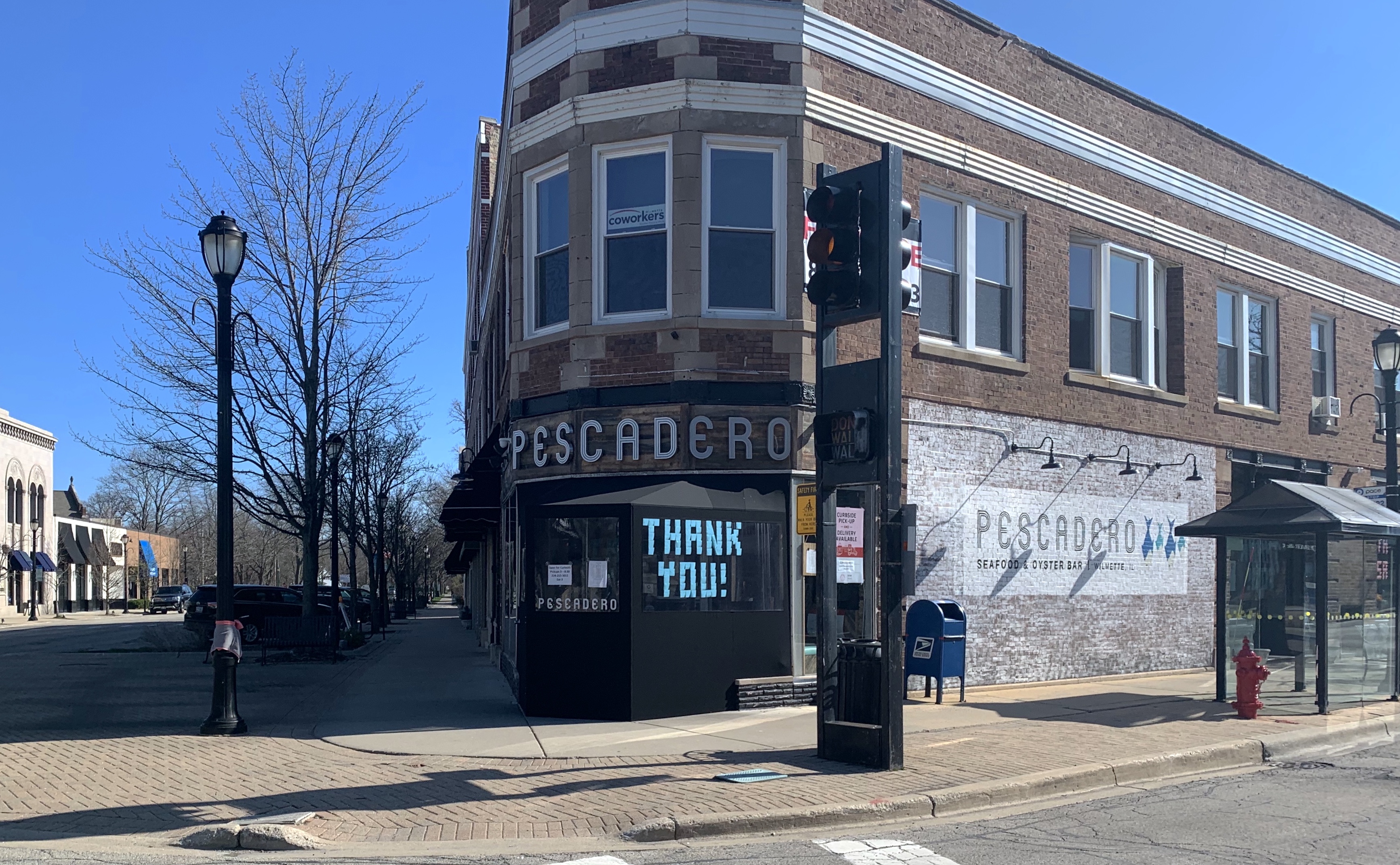By Alexis Angelus
A year before the pandemic, Steve Milford, an experienced restauranteur with a background in owning and managing restaurants, began managing Pescadero, a seafood restaurant in the Chicago suburb of Wilmette. His fifth project, Pescadero quickly gained a reputation for good food, a convivial atmosphere, and one of the top oyster bars in the area. Buoyed by four-star Yelp reviews and repeat business, Pescadero celebrated its one-year anniversary on April 18, just as coronavirus cases began erupting up in the Chicago area.
Weeks prior, the city of Chicago cancelled its St. Patricks’ Day parade and Milford began to worry as his once booming business tapered off. A week after that, Illinois Governor J.B. Pritzker issued a stay-at-home order for all non-essential businesses. Milford was forced to furlough 90 percent of his staff.
Today the restaurant is open for carryout and deliver only. “The idea was to use as few as people as possible and keep the same people working, so there was less risk for our staff,” Milford said. “We even have a temp log of those working to make sure no one is unknowingly getting sick.”
In addition, the restaurant started a GoFundMe for furloughed employees. So far customers have donated $10,000 to employees. Milford said they are extremely grateful the community has rallied around them during a time of need.
“Wilmette is a very small, tight-knit community and Pescadero built a regular customer base quickly,” Milford said. “We thought it was a very relatable idea that the area would be supportive of.”
As it tries to keep its community safe, Pescadero, and other restaurants in the food industry, are struggling to survive. Carry-out and delivery orders have become the sole income source for most restaurants, forcing them to lay off employees, cut their hours or reduce their pay. In some cases, this is a best-case scenario. In an industry that already survives on thin margins, experts predict that many restaurants will close in the wake of COVID-19.
My own experiences in food service have shown me the perseverance it takes to get through an average day, much less a pandemic. During summer break after my freshman year in college, my parents suggested I find a job in food service. They had both worked their way through college in restaurants, and they thought working in food service would be great way for my brother and me to develop a strong work ethic, resilience, and respect. (To this day, if my father hears someone behaving rudely toward the staff in a restaurant, he will loudly proclaim, “It looks like someone’s never worked a service job before.”)
I learned these values, and more, during my two summers serving tables and hostessing. Long before COVID-19 deemed these workers essential, these jobs taught me that the work of those in the service industry is undervalued.
However, it seems as if a crisis made Americans realize the worth of those who serve them every day. For Pescadero, the community is coming together to help support its out-of-work employees
“The people have been great. Of course, nowhere near the regular volume we would do, but people are genuinely concerned for their local businesses and trying to do their part,” Milford said. “Thankfully seafood isn’t too hard on the waistline.”


